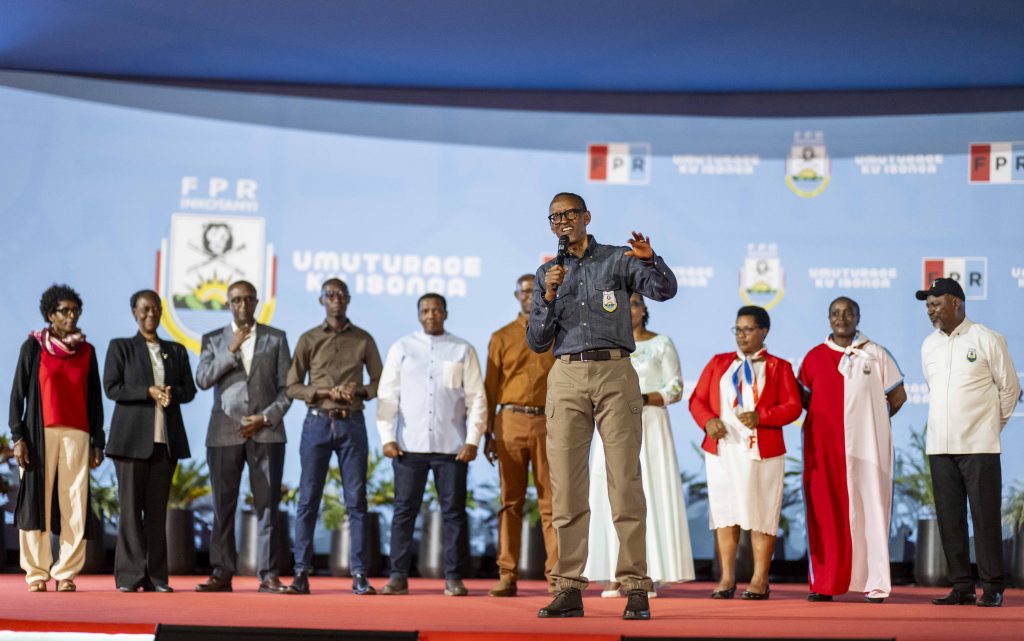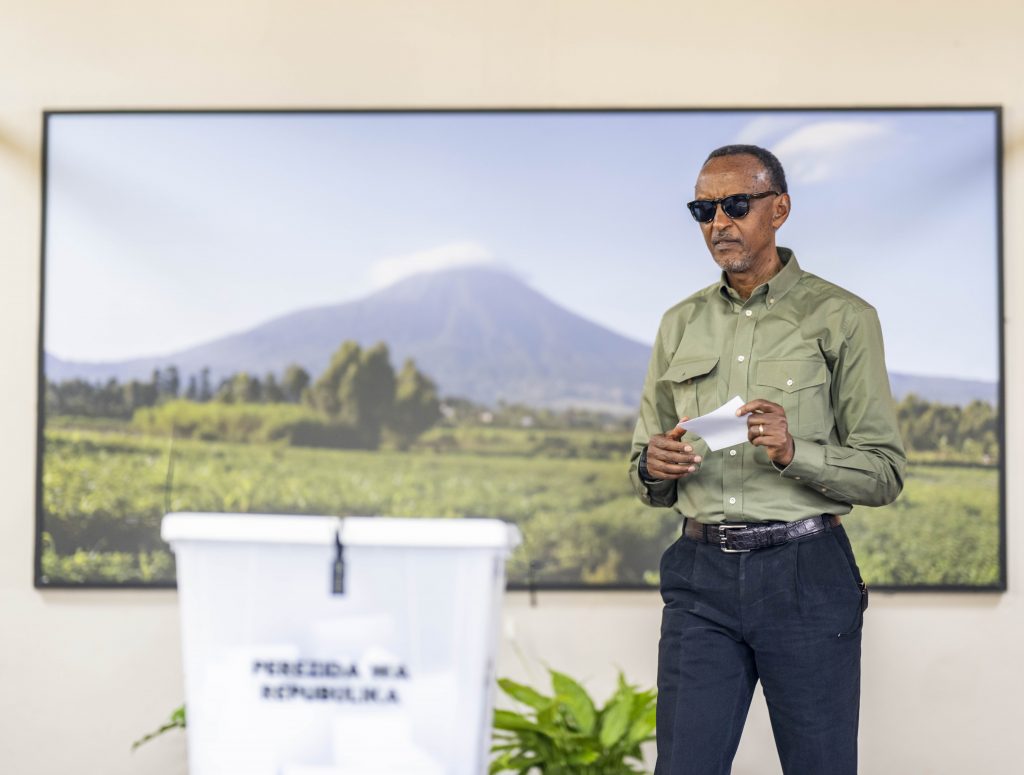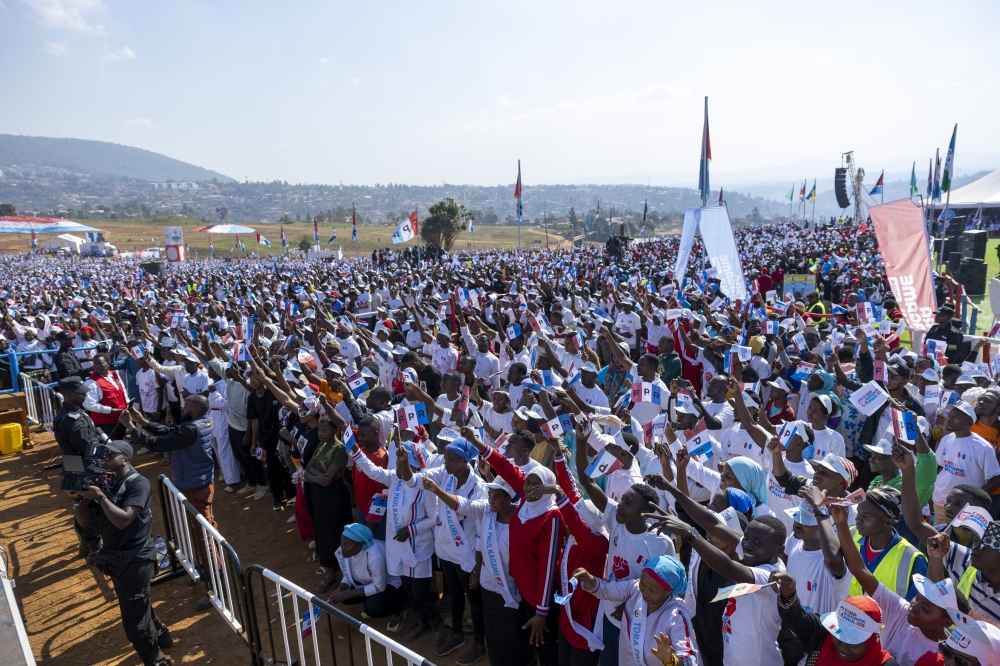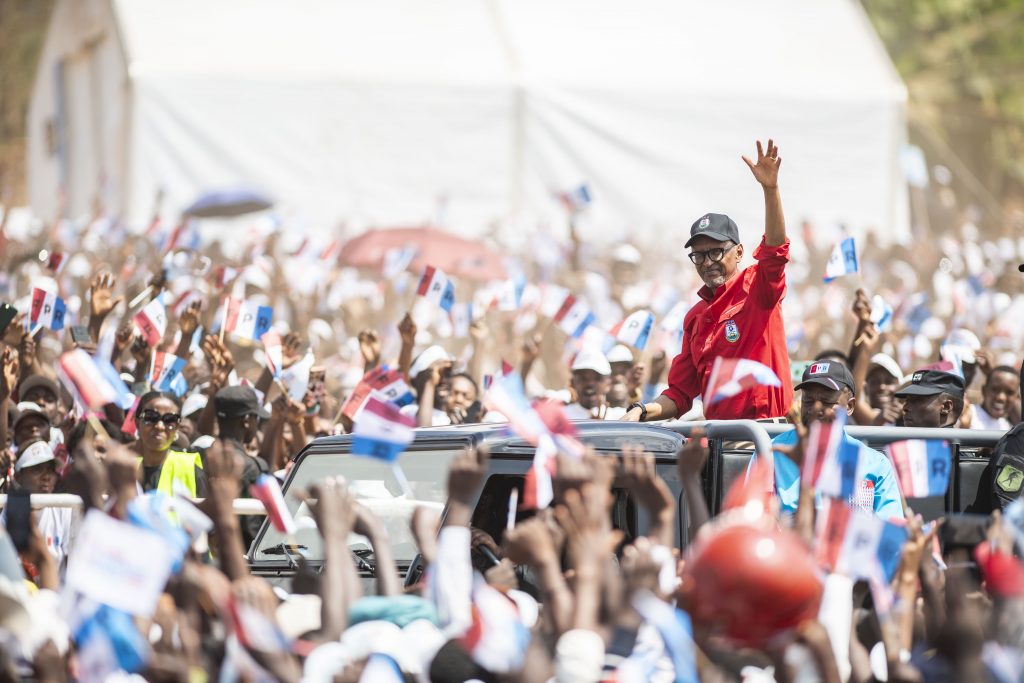2024 Election: The Magic behind Kagame’s Landslide

By George Kalisa
I am the only known Ugandan Teacher-turned-Journalist and Author who has, from the word go, not been an apologist to the Kigali administration, but my love for dispatching facts sometimes is mistaken for political activism particularly if I write about the success stories presided over by President Paul Kagame.
Besides the professional obligation that calls for the observance of the ethical code of conduct and principles of journalism including respect to fairness in reporting, I am a PanAfricanist who spares no effort to promote the unity of the African people and African values against economic and political forces at a global stage. I admire African leaders who do whatever it takes including sacrificing their lives to save and/or transform lives of their people.
I credit my personality to my mentors and President Paul Kagame tops this list. I am writing this article, thus, in celebration of his victory in the recently concluded Presidential polls, which I call the victory of the Rwandan people as a whole.
President Paul Kagame, 66, won the fourth general democratic Presidential election held July14-15, July with 99.15% according to the partial results released on July 15 by the National Electoral Commission (NEC). Kagame commanded the Rwanda Patriotic Front (RPF-Inkotanyi) and stopped the 1994 Genocide against the Tutsi. Hutu extremists and Hutu youth militias (Interahamwe) killed over one million Tutsi in the space of 100 days.

Kagame is one of a few high profile leaders revered for their unique leadership style. Millions know him as a lover of Sports and peace. Apart from entering serious deals with Arsenal FC and PSG, Rwanda has been one of the key contributors to the region’s peacekeeping missions since 2004.
Rwandan police peacekeepers are serving under the African Union-United Nations Hybrid Mission in Darfur (UNAMID), the United Nations Multidimensional Integrated Stabilisation Mission in the Central African Republic (MINUSCA) and the United Nations Mission in South Sudan (UNMISS) where Rwanda is the 4th biggest troop contributing country with 4,585 military personnel.
Such facts have become common knowledge, but what remains news to many foreigners is the track record of achievements in the political, social and economic spheres, which speak volumes about Kagame’s leadership dexterity.
Therefore, this article will package key gains largely reflected in the 99.15% of the vote that extended Kagame’s leadership.
Kagame was first elected President in 2000, a post he has held to the day. He’s a diligent, visionary, patriotic, magnetic and down-to-earth politician. Such a unique personality helps Rwanda’s President to be desperation-free.
“By the way, have you ever seen me looking desperate? I never feel hopeless and helpless. In any situation, whatever hard it can be, I never feel down because I always trust that I can join hands with you to resolve any problem,” said President Kagame shortly after he had won the fourth Presidential election.
Kagame was addressing top leaders and members of his party, and members of the eight political parties that rallied behind him in the coalition who gathered at Intare conference Arena, RPF-Inkotanyi Headquarters in the capital, Kigali.
Eight allied political parties including the Ideal Democratic Party (PDI), Democratic Union of the Rwandan People’s Party (UDPR), Prosperity and Solidarity Party (PSP) and Rwandan Socialist Party (PSR) supported Kagame’s candidature. These parties based their choice on tangible gains and success in delivering on his political party’s promises to support him prolong his leadership.
Achievements
Peace and assured security are some aspects that have made Rwandans live better lives and surprisingly they are the least covered in regional media. The Rwandan voters prioritize a leader that can help them consolidate the gains and assure them a better destiny.
For instance, life expectancy has risen up from about 14.0 years in 1994 to over 69 years in 2024.
The RPF-Inkotanyi led government under Kagame’s visionary leadership has recorded milestones in political rights and civil liberties, safety and security, citizen participation, , media, civil society rightsand freedoms, rule of Law, security, quality of service delivery, social justice.
Rwandans also celebrate major gains in key sectors such as ICT and education, health, transport, industry and trade, hospitality and tourism, agriculture, manufacturing, construction and sports.
Kigali invested massively in returning unity and cohesion, and people are connected through a smooth road network where interprovincial highways have improved transport between Provinces and to neighbouring countries. A brief of the most recent accomplishments in a few key sectors are:
Over 1,600Kms of roads today, connect provinces. The roads include Base-Rukomo-Nyagatare, Kagitumba-Kayonza-Rusumo, Ngoma-Bugesera-Nyanza, Huye-Kibeho and Pindura-Bweyeye. In addition, some 237Kms of new roads were constructed in the City of Kigali and secondary cities. Such efforts aimed at boosting the movement of goods and people.
Some 3,700 Kms of feeder roads, above the target of 3,000Kms, were constructed to help mostly farmers access markets. While floodlights installed along more than 2,160Kms of roads in cities falling below the target of 2,400Kms and the Premier told over 1,500 delegates at the 19th National Dialogue Council that the programme was ongoing.
In Manufacturing, Agro-processing and Real estate,the GoR implemented a two-year Manufacture and Build to Recover Programme (MBRP) to boost economic recovery efforts, which extended the time it was set to close. Through MBRP, the GoR had mobilized investments totaling $1.75 billion and created over 36,000 jobs as of 2022 exceeding the targets by 150% and 132% respectively. between 2021-2023.
With such interventions the country maintained economic growth of 6,9 per cent from 2017 up to the third quarter of 2023.
To mitigate effects of rising commodity prices on the international markets caused by high prices of petroleum, government provided subsidies on petroleum products and public transport alongside subsidizing industrial fertilizers.
Importation of 200 buses went a long way in addressing the shortage of buses that affected public transport in the City of Kigali and the programme that started there is rolling out to provinces revealed said Ngirente, Premier Édouard Ngirente during the 19th edition of the National Dialogue Council known locally as Umushyikirano in January 2024.
Also, Rwanda has invested massively in Agriculture the main economic activity to larger proportion of the population. This translates to improved living standards of her people.
Cultivatable land increased to 71,000ha up from 48,000ha in 2017. Investments in commercial modern farming like Gabiro Agribusiness Hub, Nasho and Mpanga irrigation schemes in the Eastern Province are some of the initiatives that account for the rise in arable land.
Fertilizers used per hectare yearly rose between 2017-2024 to 70.3Kgs up from 32Kgs in 2017, and the rise translated in increased productivity per unit of land, placing Rwanda in the lead in Sub-Saharan Africa where 25Kgs are used per hectare yearly.
The fertilizer blending plant in Bugesera with a capacity of producing 100,000 tons complements other fertilizers’ factories in ensuring sustainable supply, and the country stopped importing hybrid seeds in 2021.
Between 2017-2024, the fight against soil erosion were heightened and terraces covering 1,147,434 hectares were completed. The shortage in milk production was significantly narrowed to more than one million liters up from some 700,000 in 2017, and a milk processing plant with a 650,000-litre capacity per day, currently.

.Over 1.5 million new households accessed electricity increasing the number of household accessing the facility from 34.4% to 74% the same period.
To increase access to safe and clean water, seven processing plants were constructed including Nzove Kanzenze, Gihira, Kanyonyomba, Mwoya, Nkombo and Nyankora as a result the amount of water processed per day nearly doubled. Besides, more than 1,800 water pipes were installed in the cities and over 2,000 in rural areas.
In the ICT and Education sector, access to internet services increased following an increase in the kilometres of Fiber optic cable from 3,300 Kms in 2017 to 15,000.
Great performance was registered in women emancipation and youth empowerment.Rwanda is a champion of women’s empowerment. In 1993, women held a mere 14.9% of Parliamentary seats.
Women are a dominant force, occupying over 61.4% – among highest globally. The dramatic shift highlights Rwanda’s commitment to gender equality. And, Rwanda’s women constitutionally boast of a 50% share, a decision reached to promote equality of women and men in decision-making.
Milestones were registered in Health, Education, Hospitality, Tourism and Manufacturing.
Therefore, the 99.15% of the vote was the only way Rwandans would express firstly, their heartfelt thanks to President Kagame and expression of wish to have him continue serving them as President of the Republic of Rwanda.


